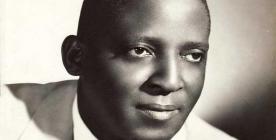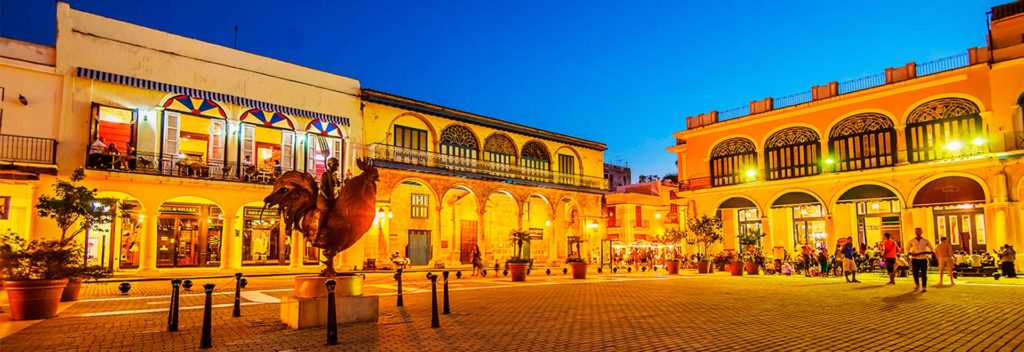A 25 AÑOS DEL FALLECIMIENTO DEL “REY DEL DANZÓN”, BARBARITO DIEZ. VIDEOS.
Conocido tambien como ‘La Voz del Danzón’ continúa Barbarito Diez despertando la curiosidad de investigadores, pasiones de los oyentes y recuerdos en quienes acompañaron su vida con las melodías de este tenor.
Con una voz capaz de poner los pelos de punta, una cubanía inconfundible y un ritmo envuelto en sensualidad, Barbarito Diez destaca hoy en las páginas de la historia de la música en la isla por su virtuosismo y maestría, a un cuarto de siglo de su muerte el 6 de mayo de 1995.
La década del 30 del siglo pasado acunó el nacimiento de Diez como músico, quien sin formación académica legó interpretaciones que lo.posicionaron en la cima del gusto popular e inmortalizó temas clásicos del pentagrama internacional como Lágrimas negras, Olvido, Juramento, El que siembra su maíz, entre otras.
Cantante de amplias facultades vocales, deleitó por 58 años a varias generaciones con piezas de Ernesto Lecuona, Moisés Simons, Eliseo Grenet, Pedro Flores, Rafael Hernández, Miguel Matamoros, entre varios destacados compositores de la nación caribeña.
Guitarras, pianos y tambores, acompañaron la voz inconfundible de Barbarito quien grabó gran número de discos de larga duración, ofreció su talento en diversos países y amenizó programas artísticos en cabarets, teatros, radio y televisión.
Diversas distinciones dan cuenta de su fecunda labor en aras del enriquecimiento cultural de nuestro pueblo, como el reconocimiento por la Cultura Nacional, las medallas Raúl Gómez García y Alejo Carpentier, la Orden Félix Varela de Primer Grado, así como otros galardones y trofeos, destaca Prensa Latina.
Diez aportó originalidad y vigor al danzón, reconocido como Baile Nacional de Cuba y creado por Miguel Faílde en el siglo XIX, con una base instrumental de piano, trompeta, clarinete, flauta, timbales, güiro y claves.
El destacado intelectual cubano Miguel Barnet catalogó a Barbarito como una brújula que apunta a la cubanía pues su voz, cual palo de monte, constituye la raíz de cuya savia se nutren los aires de la patria.
 25 YEARS AFTER THE DEATH OF THE “REY DEL DANZÓN”, BARBARITO DIEZ. VIDEOS.
25 YEARS AFTER THE DEATH OF THE “REY DEL DANZÓN”, BARBARITO DIEZ. VIDEOS.
Also known as ‘La Voz del Danzón’, Barbarito Diez continues to awaken the curiosity of researchers, listeners’ passions, and memories of those who accompanied his life with the melodies of this tenor.
With a voice capable of making your hair stand on end, an unmistakable Cubanness and a rhythm enveloped in sensuality, Barbarito Diez stands out today in the pages of the history of music on the island for his virtuosity and mastery, a quarter of a century from his died on May 6, 1995.
The decade of the 30 of the last century cradled the birth of Diez as a musician, who without academic training bequeathed interpretations that placed him at the peak of popular taste and immortalized classic themes of the international pentagram such as Black tears, Oblivion, Oath, He who sows his corn, among others.
Singer of broad vocal faculties, he delighted several generations for 58 years with pieces by Ernesto Lecuona, Moisés Simons, Eliseo Grenet, Pedro Flores, Rafael Hernández, Miguel Matamoros, among several prominent composers of the Caribbean nation.
Guitars, pianos, and drums accompanied the unmistakable voice of Barbarito, who recorded a large number of long-playing records, offered his talent in various countries, and entertained artistic programs in cabarets, theaters, radio, and television.
Various distinctions account for his fruitful work for the cultural enrichment of our people, such as recognition by the National Culture, the Raúl Gómez García, and Alejo Carpentier medals, the Order of Felix Varela of the First Degree, as well as other awards and trophies, highlights Latin Press.
Diez brought originality and vigor to the danzón, recognized as the Cuban National Dance and created by Miguel Faílde in the 19th century, with an instrumental base of piano, trumpet, clarinet, flute, timpani, güiro, and harpsichord.
The outstanding Cuban intellectual Miguel Barnet cataloged Barbarito as a compass that points to Cuba because his voice, like a mountain wood, constitutes the root of whose sap the airs of the homeland are nourished.
Agencies/ RHC/ Julio Pérez/ Internet Photos/ YouTube/ Arnoldo Varona/ www.TheCubanHistory.com
THE CUBAN HISTORY, HOLLYWOOD.








